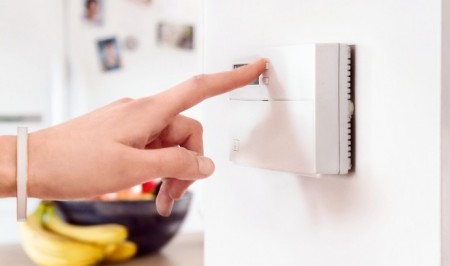Reliance Home Comfort: $49 for Furnace or Air-Conditioner Safety and Efficiency Tune-Up ($149 Value)
Today’s Groupon Calgary Daily Deal of the Day: Reliance Home Comfort: $49 for Furnace or Air-Conditioner Safety and Efficiency Tune-Up ($149 Value)
Buy now for only $
49
Value $149
Discount 67% Off
Save $100
The Groupon Deal
- C$49 for a furnace or air-conditioner safety and efficiency tune-up (C$149 value)
This is a limited 1-day only sale that will expire tonight at midnight (Sunday, May 24, 2015).
Click here to buy now or for more info about the deal. Quantities are limited so don’t miss out!
In a Nutshell
Expert technicians adjust, clean, and lubricate furnaces or air conditioners, ensuring each functions safely and efficiently
The Fine Print
Promotional value expires 90 days after purchase. Amount paid never expires. Limit 1 per person, may buy 1 additional as a gift. Limit 1 per household. Appointment required by 5/31/2015; subject to availability. Taxes not included. No cash value. No cash back. Not valid with other offers. Valid in Calgary and surrounding areas including Red Deer and Airdrie. Merchant is solely responsible to purchasers for the care and quality of the advertised goods and services.
Reliance Home Comfort
http://www.reliancehomecomfort.com/sites/Calgary/Pages/default.aspx
Central Air Conditioning: A Quick-Change Act at Home
Take a peek at the principles of central air conditioning to understand just what your technician will be adjusting.
A refrigerant is a substance that transforms more easily than most from a gas to a liquid and back again. This shape-shifting is what makes modern air conditioning possible. Refrigerant cools the home by traveling through a compressor, a condenser, and an evaporator—the last a part of the furnace system inside the house, while the other parts reside in an air-conditioning unit that usually sits outside staring longingly at the family it works for.
It might seem natural to think of air conditioning as a process of blowing cool air into the home, but it might be more easily understood as a matter of carrying off hot air. Fans suck air from the home into the system and draw it across the coils of the evaporator, which house liquid refrigerant. As the refrigerant relieves it of its heat, the furnace’s blower and ducts distribute the now-cooler air throughout the home. Meanwhile, under heat, the refrigerant becomes a vapor that flows into the compressor, which further pressurizes the gas and propels it into the condenser.
Now it’s time to get rid of all that heat. In the condenser, heat is radiated away, helped along by the venting and large surface area of the metal fins on the outside of the unit. This lets the refrigerant cool down and return to liquid form, leaving it ready to flow back inside and pick up another load of the home’s heat.
Since it hit the market in 1932, central air conditioning has not only made it possible to build houses in the hottest regions of the country—it’s actually changed the way those houses are built. High ceilings, eaves, awnings, attics, and front porches were once standard elements of home architecture that provided relief from the stifling summer heat and invited bats to come flap their wings to make breezes. Central air made it both possible and, given the cost of installation, desirable to create simpler one-story homes without these architectural flourishes, leading to a post–World War II boom in sprawling modern developments.
Click here to buy now or for more information about the deal. Don’t miss out!

